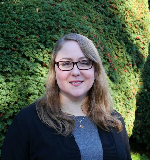Dr Miranda Barnes is Research Associate in Archiving & Preserving Open Access Books at Loughborough University
The Open Book Futures project, which began in May 2023 as an acceleration and advancement of the COPIM Project (11/2019-04/2023), continues to focus on the open access monograph, with an emphasis on Scaling Small. This principle “eschews standard approaches to organisational growth that tend to flatten community diversity through economies of scale” (Adema & Moore, 2021). Work Packages in both projects focus more broadly on infrastructure, governance, accessibility, financial models and revenue, metadata and dissemination, and experimental publishing, but also archiving and preservation. It is the combined approach and multifaceted, collaborative interaction of the work packages that leads to our best insights and outputs.
Both COPIM and Open Book Futures depend on the breadth of different groups and individuals involved, which includes scholars, librarians, publishers, infrastructure providers and advocacy groups, as well as colleagues in a variety of other roles at the universities and institutions involved in the projects. Without the perspectives, knowledge, and support of the many members of this "community of communities” (Adema, Hart, et al, 2022), any impact made by our work would be isolated and siloed. Our research into community-supported options for archiving and preservation is no different. We gain a great deal from knowing what challenges face the academic author, the scholar-led press, and the libraries wishing to support the open research agenda. Our understanding is buoyed and clarified by our conversations and collaborations with digital preservation archives, infrastructure providers, and platforms, allowing us to develop and advance tools and guidance to benefit those who need it most. And without organisations such as the DPC, Jisc, OAPEN, and DOAB, and the collective expertise and experience they share, certainly our community and efforts would be greatly diminished.
Another important community we have been engaging is that of other projects examining similar issues from different perspectives, such as the work of the Embedding Preservability Project, and its predecessor Enhancing Services to Preserve New Forms of Scholarship, both led by New York University Libraries. This project specifically considers the challenges to long-term preservation of “increasingly complex publications that are not easily represented in print.” Also the Software Preservation Network’s EaaSI, or Emulation as a Service Infrastructure, who have built a platform with preservation potential for the most complicated published works that may depend on a virtual machine to render properly. Connecting and meeting with our colleagues within these projects has been immensely beneficial, particularly for project members working on experimental publishing and digital preservation. This is just one example of the collaborative, cooperative spirit pervasive within our “community of communities” that has come to define open research.
Within the COPIM Project, collaborations between the Experimental Publishing work package and Archiving & Preservation allowed for the creation of multiple resources. Miranda Barnes contributed to a post by Rebekka Kiesewetter on Preserving Combinatorial Books, particularly those created on platforms in use by the publishers within the Project. And Chapter 6 of Good, Better, Best: Practices in Archiving & Preserving Open Access Monographs, the guidebook created by COPIM’s Archiving & Preservation work package, examines these challenges and emerging solutions in further depth.
While the COPIM Project always aimed for an international perspective, Open Book Futures will now further expand into the global community, with the Archiving & Preservation work package establishing an informal network of National Libraries around the world to consider cooperative approaches to supporting the preservation of small publishers’ OA monographs into the future. In a similar vein, we seek to grow our burgeoning Thoth Archiving Network to include repositories not just in the UK and EU, but from a more diverse set of representations including e.g. Australasia, Africa, and Latin America.
Community and cooperation are key to our values and we are looking forward to reaching out further beyond borders to expand our “community of communities”, to advance the not-for-profit, open, and community-led values that are key to COPIM and Open Book Futures’ mission.
